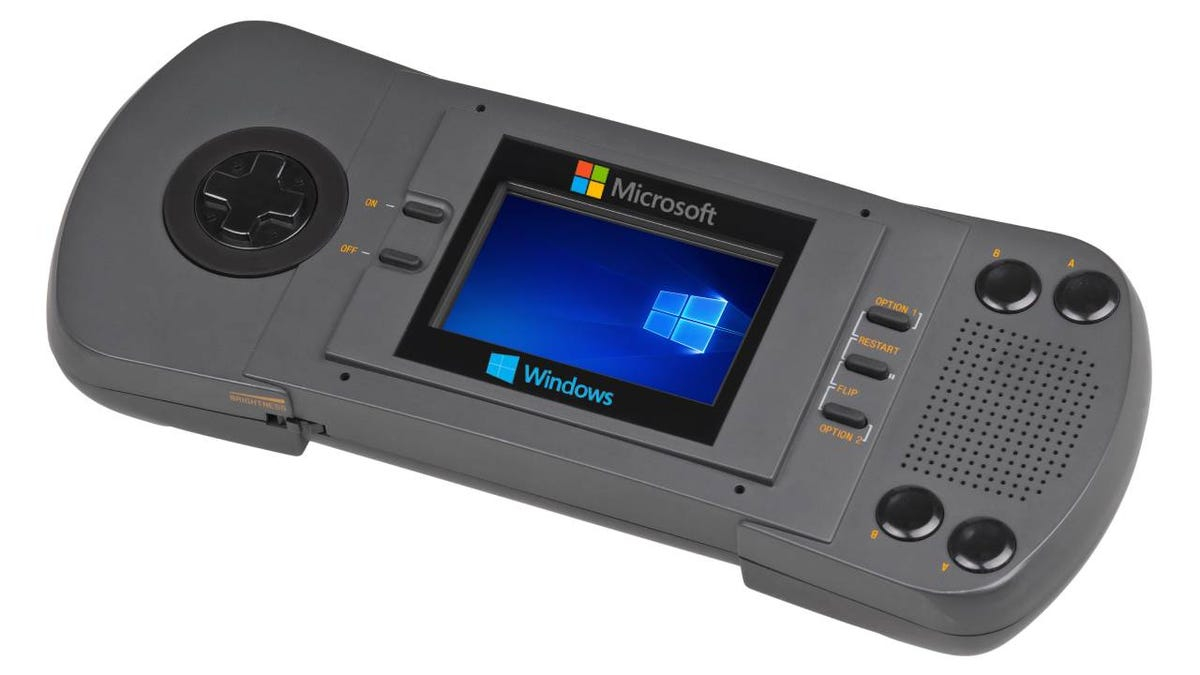Microsoft’s Ambitious Plans for a Handheld Gaming Device
A New Direction in Portable Gaming
Microsoft is stirring excitement once again regarding the potential launch of a handheld gaming device. In November 2024, Xbox CEO Phil Spencer hinted that the company was “working on” such a device, even though he cautioned that it might take several years to materialize. Recently, during an interview with The Verge at CES, another high-ranking Microsoft official provided insights into what could be a more PC-oriented handheld option—possibly arriving as soon as this year.
Insights from Microsoft’s VP of Next Generation
Jason Ronald, who holds the intriguing title of Vice President of Next Generation, spoke with The Verge following a roundtable discussion titled “The Future of Gaming handhelds.” He suggested that rather than simply creating a portable version of the Xbox console, Microsoft might develop a handheld device that offers an experience akin to Xbox but operates more like a portable PC. This distinction can be somewhat perplexing since today’s consoles are essentially closed systems resembling PCs. Moreover,Microsoft’s current marketing strategy promotes any internet-connected screen as part of the Xbox ecosystem through its streaming initiatives.
Ronald emphasized that their aim is to leverage decades of console advancement expertise and apply it to create an innovative portable PC experience. “We’re looking at merging the best aspects of Xbox and windows,” he stated in his conversation with The Verge. “For over 20 years we’ve been refining our operating system; however, it’s primarily confined to consoles.” This suggests an intention not only to unify these platforms but also to enhance user-friendliness on smaller screens—a challenge Microsoft has historically struggled with.
Learning from Past Mistakes
Reflecting on past experiences can provide context for this new venture. Many may recall attempts by Microsoft in mobile technology—such as Windows-based smartphones—that fell short due to poor user experiences. Additionally, previous efforts like Windows 7’s tile interface were criticized for compromising usability across devices while trying too hard to cater specifically to mobile users.
With numerous tech companies eager to capitalize on Valve’s Steam Deck success by launching their own handheld PCs, it’s clear that Microsoft wants its share too. However, there seems to be recognition within the company that windows 11 alone may not suffice for gaming needs and using Linux-based systems would not align with their brand identity.
Ronald hinted at future developments when he mentioned they would have more data later this year but acknowledged familiarity in his statements: “Ultimately our goal is making Windows exceptional for gaming across all devices.” This sentiment echoes previous promises made during various iterations of Windows aimed at enhancing gaming capabilities—many times without significant impact or adoption among gamers.
Bridging Two Worlds: xbox and Portable Computing
Despite these challenges over time—with instances like Vista’s ill-fated hardware scoring feature still fresh in memory—Windows remains entrenched as the default operating system for PC gaming largely because it works best when left unencumbered by excessive corporate intervention.
as Ronald pointed out, since much of the code powering Xbox runs atop Windows architecture already exists; transitioning elements from one platform into another should theoretically be manageable without monumental effort. However, adapting it effectively will require rethinking how users interact with games on smaller screens devoid of traditional desktop features like cursors or taskbars—a feat already accomplished by existing consoles through their simplified interfaces and limited settings options.
“There are core interaction models we’re developing,” ronald explained further about ensuring seamless integration nonetheless of underlying OS specifics so players enjoy an authentic gaming-centric experience tailored specifically for them.
In conclusion: while speculation around a portable version resembling an Xbox persists—it appears we may soon witness something even more intriguing—a handheld computing device designed explicitly around delivering immersive gameplay reminiscent of what gamers expect from their beloved consoles within just months ahead!
